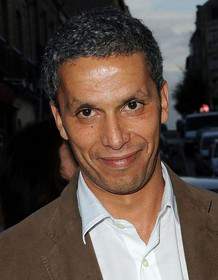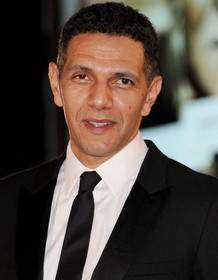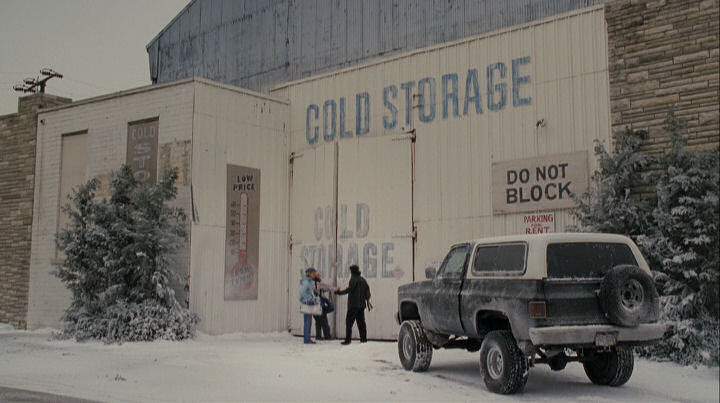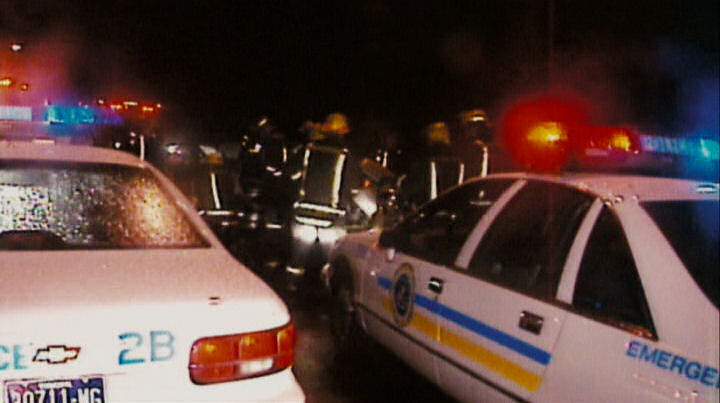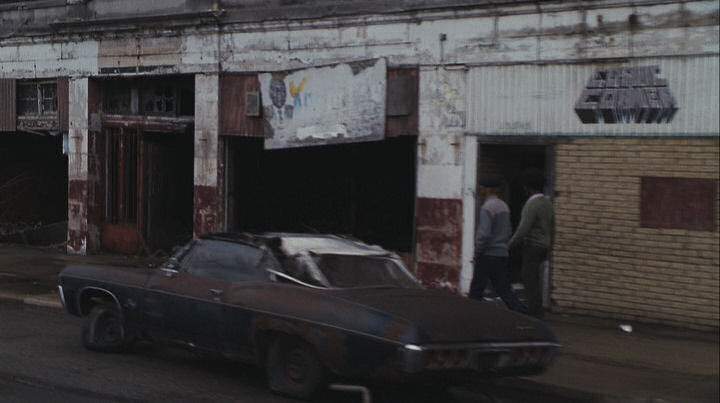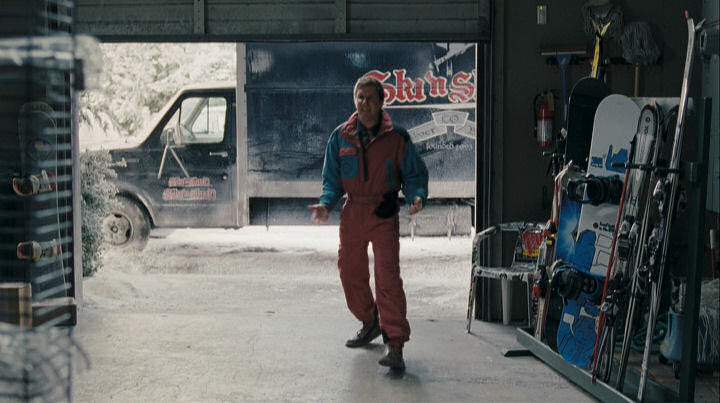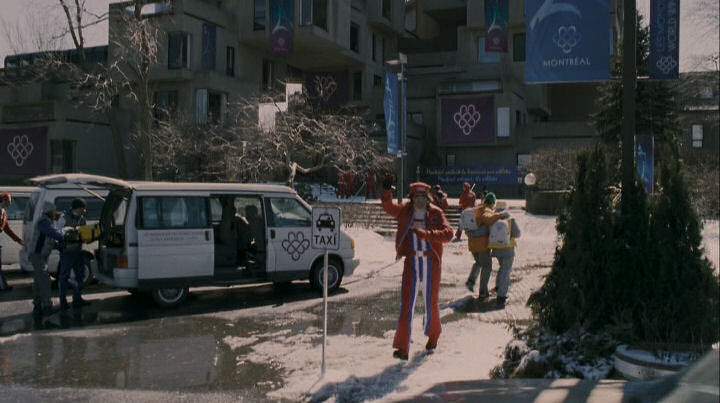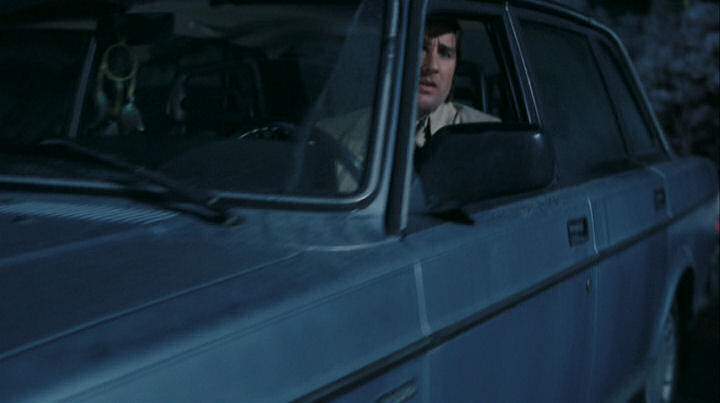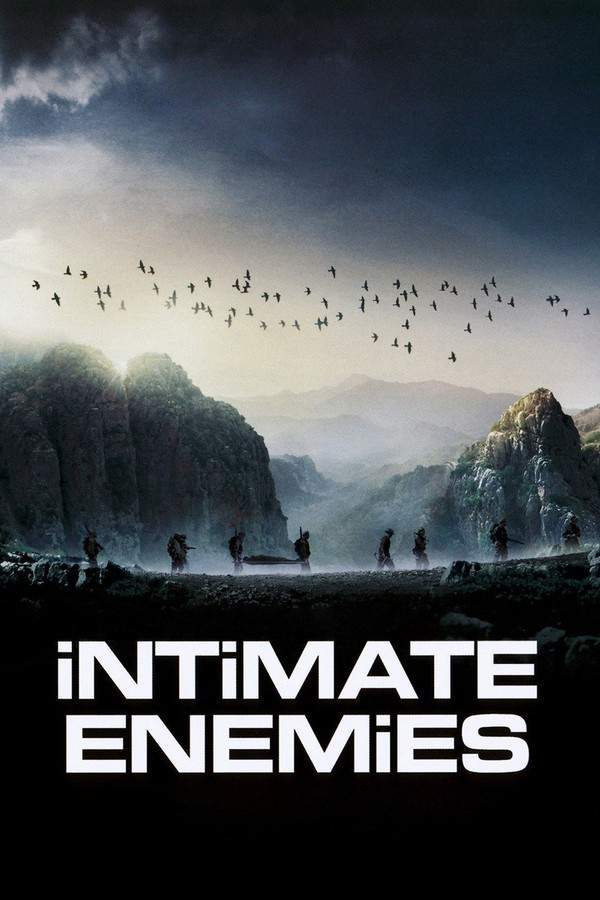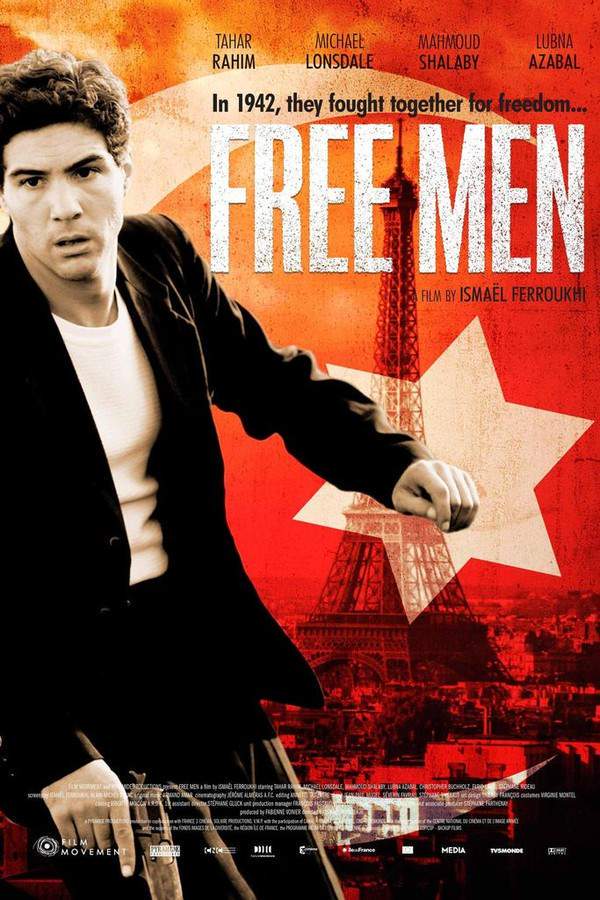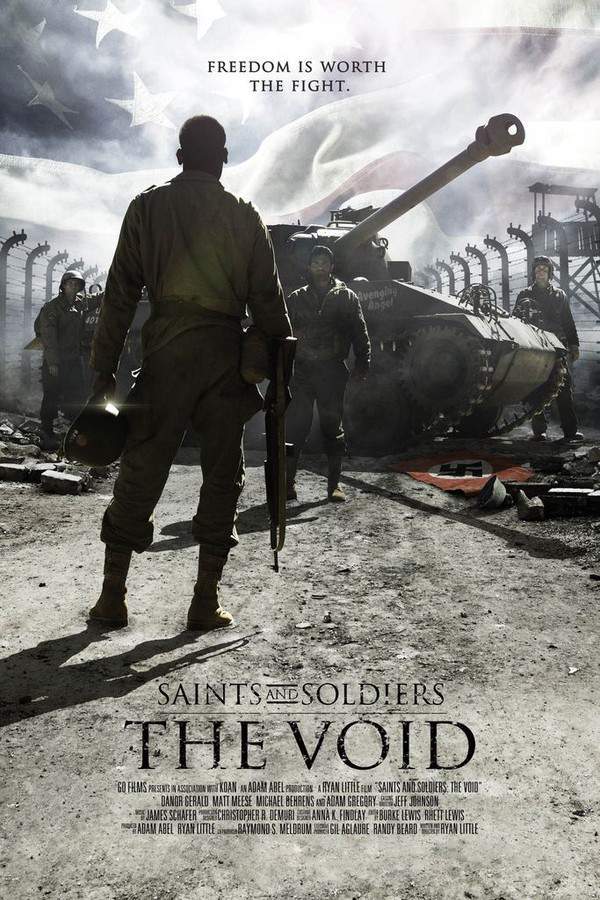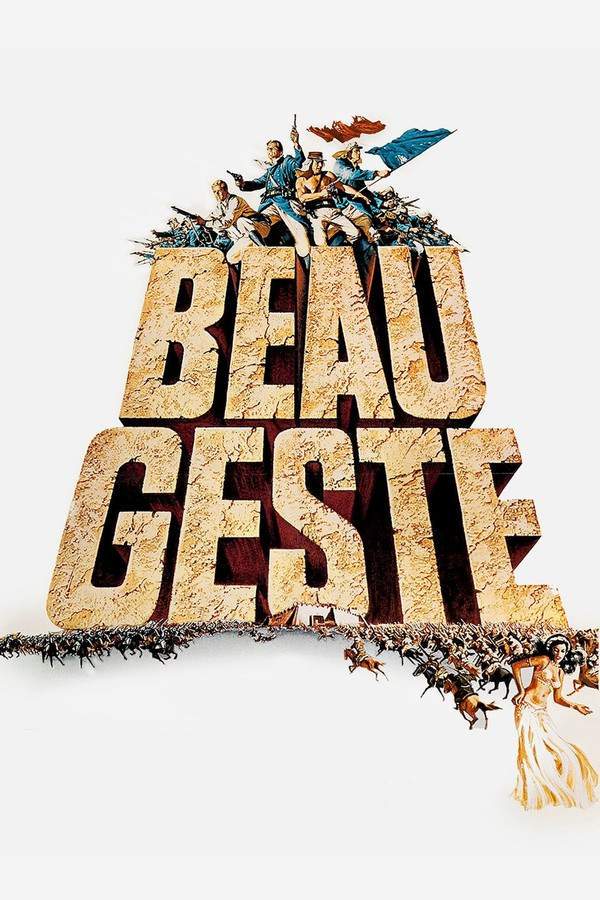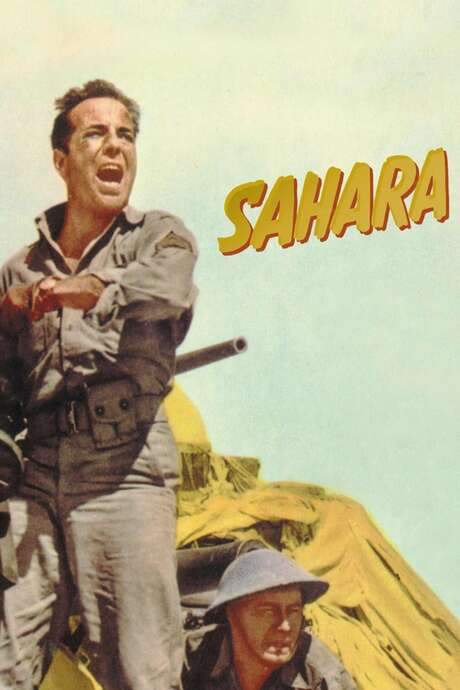Days of Glory 2006
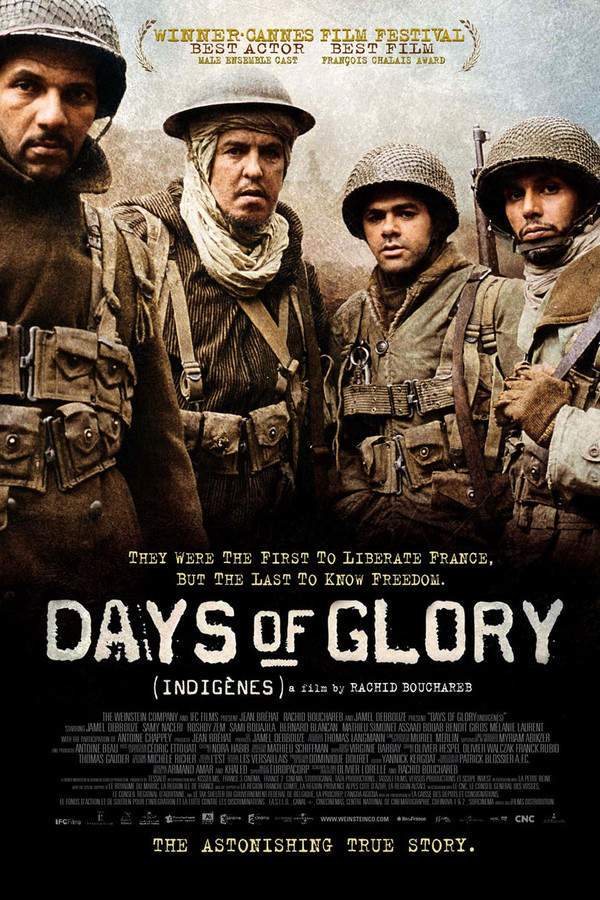
During World War II, four young soldiers from French North Africa – Said, Abdelkader, Messaoud, and Yassir – volunteer to fight alongside France against the Nazi forces. Motivated by patriotism and a hope for liberation, they participate in intense battles across Italy and Provence. Later, the unit is cut off, leaving the four soldiers to bravely defend a small village in Alsace against a determined German battalion, pushing their loyalty and courage to the limit.
Does Days of Glory have end credit scenes?
No!
Days of Glory does not have end credit scenes. You can leave when the credits roll.
Meet the Full Cast and Actors of Days of Glory
Explore the complete cast of Days of Glory, including both lead and supporting actors. Learn who plays each character, discover their past roles and achievements, and find out what makes this ensemble cast stand out in the world of film and television.
External Links and Streaming Options
Discover where to watch Days of Glory online, including streaming platforms, rental options, and official sources. Compare reviews, ratings, and in-depth movie information across sites like IMDb, TMDb, Wikipedia or Rotten Tomatoes.
Ratings and Reviews for Days of Glory
See how Days of Glory is rated across major platforms like IMDb, Metacritic, and TMDb. Compare audience scores and critic reviews to understand where Days of Glory stands among top-rated movies in its genre.

82
Metascore
6.8
User Score


83%
TOMATOMETER

79%
User Score

67
%
User Score
Take the Ultimate Days of Glory Movie Quiz
Challenge your knowledge of Days of Glory with this fun and interactive movie quiz. Test yourself on key plot points, iconic characters, hidden details, and memorable moments to see how well you really know the film.
Quiz on 'Days of Glory': Test your knowledge about the historical drama 'Days of Glory' and its themes of war, discrimination, and heroism.
In what year does the film 'Days of Glory' begin?
1940
1943
1945
1947
Show hint
Awards & Nominations for Days of Glory
Discover all the awards and nominations received by Days of Glory, from Oscars to film festival honors. Learn how Days of Glory and its cast and crew have been recognized by critics and the industry alike.
12th Critics' Choice Awards 2007
Best Foreign Language Film
22nd Film Independent Spirit Awards 2007
Best International Film
Full Plot Summary and Ending Explained for Days of Glory
Read the complete plot summary of Days of Glory, including all major events, twists, and the full ending explained in detail. Explore key characters, themes, hidden meanings, and everything you need to understand the story from beginning to end.
The movie opens its narrative in the tumultuous year of 1943, where a passionate recruiter is fervently persuading local Algerians to enlist in the French military to defend their homeland against the encroaching German forces. Among the eager recruits is Said Otmari, who, despite his mother’s desperate pleas—reminding him that his grandfather went off to war and never returned—rushes to join the other brave souls in the trucks. As he departs, the worry etched across his mother’s face signals the heavy toll that war extracts from families.
Once they arrive in Morocco for basic training, the soldiers are galvanized by a French colonel’s spirited rallying cry, urging them to fight for the nobility synonymous with France. Here, we meet Yassir and his younger brother Larbi, who quickly express regret over enlisting, primarily motivated by financial need. Additionally, there’s a glimpse of Abdelkader, another North African recruit, who is diligently preparing for his Corporal exams.
By 1944, the narrative shifts to Italy as they take their posts in the 2nd Company of the 7th Algerian Infantry Regiment, now led by the newly promoted Corporals: Abdelkader and French Corporal Leroux. They find themselves under the command of Sgt Martinez, a deeply troubled individual who oscillates between belittling his men and presenting their struggles to his superior, Captain Durieux. Martinez’s rough demeanor becomes evident when he identifies Messaoud Souni as an exceptional marksman, assigning him the crucial role of the company’s designated sharpshooter.
One tense training session escalates when a grenade becomes unwittingly affixed to Said’s uniform; in a panic, Martinez tosses it away, narrowly averting disaster, but not without brutally reprimanding Said and dismissing Corporal Abdelkader when he attempts to defend him. The following evening, as they prepare for an assault on a hill the next day, tensions simmer among the men, who express discontent over Martinez’s treatment of Said, though an older soldier interjects that Martinez ultimately means well.
As dawn breaks, the soldiers embark on a perilous climb under an onslaught of fire, striving to overcome both the German enemy and their own artillery’s wrath. Amidst this chaos, Said’s bravery erupts, taking out a German machine gun nest, yet he soon finds himself in a life-or-death struggle with an opposing soldier until Martinez acts swiftly, shooting the German just in time. Meanwhile, Yassir and Larbi opportunistically scavenge prized possessions from the deceased soldiers.
In the aftermath of this harrowing engagement, the French Colonel revels in their victory, hailing it as the first triumph over the Germans since 1940 and commissioning a report that exalts France’s regaining of glory and ally trust. We watch as the soldiers prepare for a return to France; Said approaches Martinez to express his gratitude for saving his life, resulting in Martinez appointing him batman to replace a fallen comrade.
A crucial moment unfolds within the mess hall, where the North Africans first experience the bitter sting of discrimination in the French army as a black soldier is denied access to fresh tomatoes. Martinez orders the man to step aside, which infuriates Corporal Abdelkader. In a powerful act of defiance, he smashes the tomatoes underfoot, proclaiming that if they cannot partake, no one shall. Following this, when Captain Durieux is summoned, Martinez advises him simply to regard them as men—ultimately leading to all soldiers being granted their share of fresh tomatoes, prompting jubilant cheers from the North Africans.
As the story transitions to Provence in August 1944, they are met with warm greetings as liberators. The young marksman Messaoud finds chance romance with a French girl named Irene, discovering intimate comforts he’s never imagined while they navigate their complicated relationship amidst the backdrop of war. However, Yassir and Larbi trudge through their moral decline as they set up a black market scheme.
In October 1944, in the Rhone Valley, Messaoud dreams of a future with Irene while the unit’s camaraderie is tested once more. Letters home go unseen, creating a chasm between the soldiers and their families. Amidst the harsh realities, Martinez and the soldiers grapple with their identities as they witness the growing discontent while reveling in the hope of much-needed leave.
As the year progresses and winter’s frost blankets the Vosges, yet another powerful speech from the Colonel charges the men for a now inevitable attack. The narrative builds tension as we witness the horrific toll of war manifest through continued casualties. An anguished Messaoud pens another letter, only to watch in despair as it gets censored. Tension culminates as Martinez confronts superior officers regarding their treatment, advocating for equitable treatment, yet finding himself at odds with his own prejudices.
A pivotal turning point occurs as Alsace becomes the new battlefield in January 1945. The squad encounters a catastrophic series of events that decimate their numbers, leaving just a handful of survivors navigating the challenges of leadership and unity when faced with imminent danger. Martinez’s reluctant acceptance of Abdelkader as their leader marks a significant shift in their dynamic, with each soldier bearing the weight of their history and allegiance.
Time races ahead, juxtaposing the chaos of war with a future without recognition. The film ultimately extends its narrative depth into Alsace, 60 years later, revealing an elderly Abdelkader’s heartbreak as he lays flowers on the unmarked graves of comrades whose sacrifices have faded into obscurity. The poignant closing statement reflects the ongoing struggle for acknowledgment and rights, illuminating the complexity of the relationships formed in the heat of battle, and the forgotten heroes of colonial France, highlighting a timeless narrative of loyalty and longing that resonates through generations.
Uncover the Details: Timeline, Characters, Themes, and Beyond!

Coming soon on iOS and Android
The Plot Explained Mobile App
From blockbusters to hidden gems — dive into movie stories anytime, anywhere. Save your favorites, discover plots faster, and never miss a twist again.
Sign up to be the first to know when we launch. Your email stays private — always.
Watch Trailers, Clips & Behind-the-Scenes for Days of Glory
Watch official trailers, exclusive clips, cast interviews, and behind-the-scenes footage from Days of Glory. Dive deeper into the making of the film, its standout moments, and key production insights.
Cars Featured in Days of Glory
Explore all cars featured in Days of Glory, including their makes, models, scenes they appear in, and their significance to the plot. A must-read for car enthusiasts and movie buffs alike.
Days of Glory Themes and Keywords
Discover the central themes, ideas, and keywords that define the movie’s story, tone, and message. Analyze the film’s deeper meanings, genre influences, and recurring concepts.
Days of Glory Other Names and Titles
Explore the various alternative titles, translations, and other names used for Days of Glory across different regions and languages. Understand how the film is marketed and recognized worldwide.
Similar Movies To Days of Glory You Should Know About
Browse a curated list of movies similar in genre, tone, characters, or story structure. Discover new titles like the one you're watching, perfect for fans of related plots, vibes, or cinematic styles.
Quick Links: Summary, Cast, Ratings, More

What's After the Movie?
Not sure whether to stay after the credits? Find out!
Explore Our Movie Platform
New Movie Releases (2025)
Famous Movie Actors
Top Film Production Studios
Movie Plot Summaries & Endings
Major Movie Awards & Winners
Best Concert Films & Music Documentaries
Movie Collections and Curated Lists
© 2025 What's After the Movie. All rights reserved.




